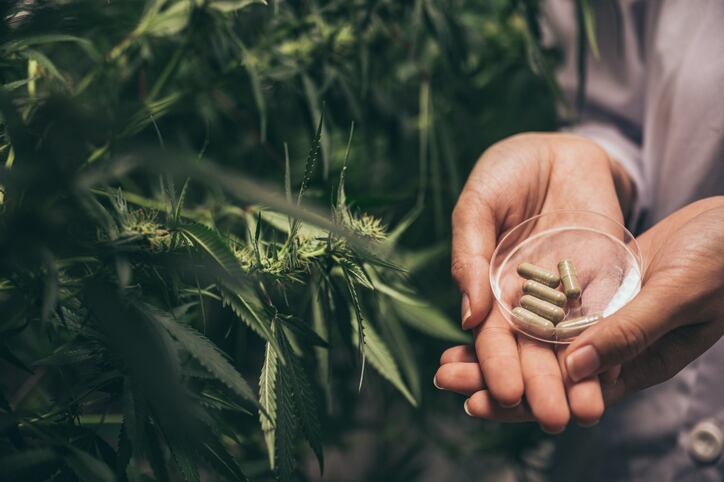According to that same Gallup poll, 40% of CBD users cited relief from pain, 20% said anxiety, 11% listed insomnia and 8% reported arthritis as the top reasons for use. However, CBD alone is not currently approved for treatment of pain in the US.
As the FDA continues to gather evidence on the uses and effectiveness of CBD products, marketers and users alike claim they have a wide variety of benefits, including pain. Now, new research from Syracuse University may have the potential to back up such claims.
The research, published in Experimental and Clinical Psychopharmacology, offers new insight on CBD’s ability to reduce pain as well as the impact the placebo effect may have on pain outcomes.
"For science and the public at large, the question remained—is the pain relief that CBD users claim to experience due to pharmacological effects or placebo effects?" asked Martin De Vita, a researcher in the psychology department at Syracuse University's College of Arts and Sciences. "That's a fair question because we know that simply telling someone that a substance has the ability to relieve their pain can actually cause robust changes in their pain sensitivity. These are called expectancy effects."
The study
Using a crossover, 2 × 2 factorial balanced placebo design, pure CBD isolate oil and placebo administration along with verbal instruction sets were experimentally manipulated. Fifteen healthy adults each completed four separate experimental sessions.
Using technology to safely induce experimental heat pain, the researchers were able to measure how the recipient's nervous system reacted and responded to the pain.
"Then we administer a drug, like pure CBD, or a placebo and then re-assess their pain responses and see how they change based on which substance was administered," explained De Vita.
From there, the researchers manipulated the information given to participants about which substances they received. In some cases, participants were told that they got CBD when they actually received a placebo and vice-versa. This was done by randomly assigning participants to different counterbalanced manipulation conditions at each session:
- Control (told inactive—given inactive)
- Expectancy (told active CBD—given inactive)
- Drug (told inactive—given active CBD)
- Expectancy + drug (told active CBD—given active CBD)
Complex, yet exciting findings
The data showed that CBD and expectancies for receiving CBD do not appear to reduce experimental pain intensity, but do make the pain feel less unpleasant.
"We hypothesized that we would primarily detect expectancy-induced placebo analgesia (pain relief). What we found though, after measuring several different pain outcomes, is that it's actually a little bit of both. That is, we found improvements in pain measures caused by the pharmacological effects of CBD and the psychological effects of just expecting that they had gotten CBD. It was pretty remarkable and surprising,” said De Vita.
The authors concluded that future investigations of the psychological and pharmacological mechanisms underlying CBD analgesia are warranted.
"The data is exciting but pretty complex in that different pain measures responded differently to the drug effect, to the expectancy, or both the drug and expectancy combined—so we're still trying to figure out what is behind the differential data with different kinds of pain measures," said Syracuse Emeritus Psychology Professor Stephen Maisto. "The next step is studying the mechanisms underlying these findings and figuring out why giving instructions or CBD itself causes certain reactions to a pain stimulus."
Source: Experimental and Clinical Psychopharmacology
Advance online publication. doi.org/10.1037/pha0000465
“What patients expect influences pain management”
Authors: M. De Vita et al.




